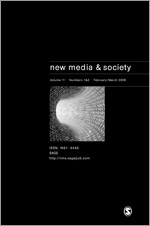Revisiting the ‘Epistemization’ of Overlaying: The computerized mapping of disease project (MOD), 1965–1968
Abstract

The article discusses the practice of overlaying maps for the study of disease-environment correlations in medical geography, and how it has been expressed as an epistemic practice in the early days of digital geographic information systems (GIS). It focuses on the research project “Computerized Mapping of Disease (MOD)” (1965–1968), where the epistemological promise of overlaying was made explicit and in relation to new technological affordances. I argue that the MOD project points to a dual shift in the meaning of overlaying for correlation inference during its attempted “computerization”: the transformation of overlaying from an implicit practice toward an explicit epistemic resource and toward a conceptual schema for reflecting about the nature of correlations, which effectively promoted the technology of overlaying as a new apparatus of implication. Overall, the article proposes an epistemiologically reflexive take on the history of geomedia practices.
Quellen
Krämer, Steffen. 2022. Revisiting the ‘Epistemization’ of Overlaying: The computerized mapping of disease project (MOD), 1965–1968. In: New Media & Society 24, Nr. 11: 2419–2437. doi: 10.1177/14614448221122193.
